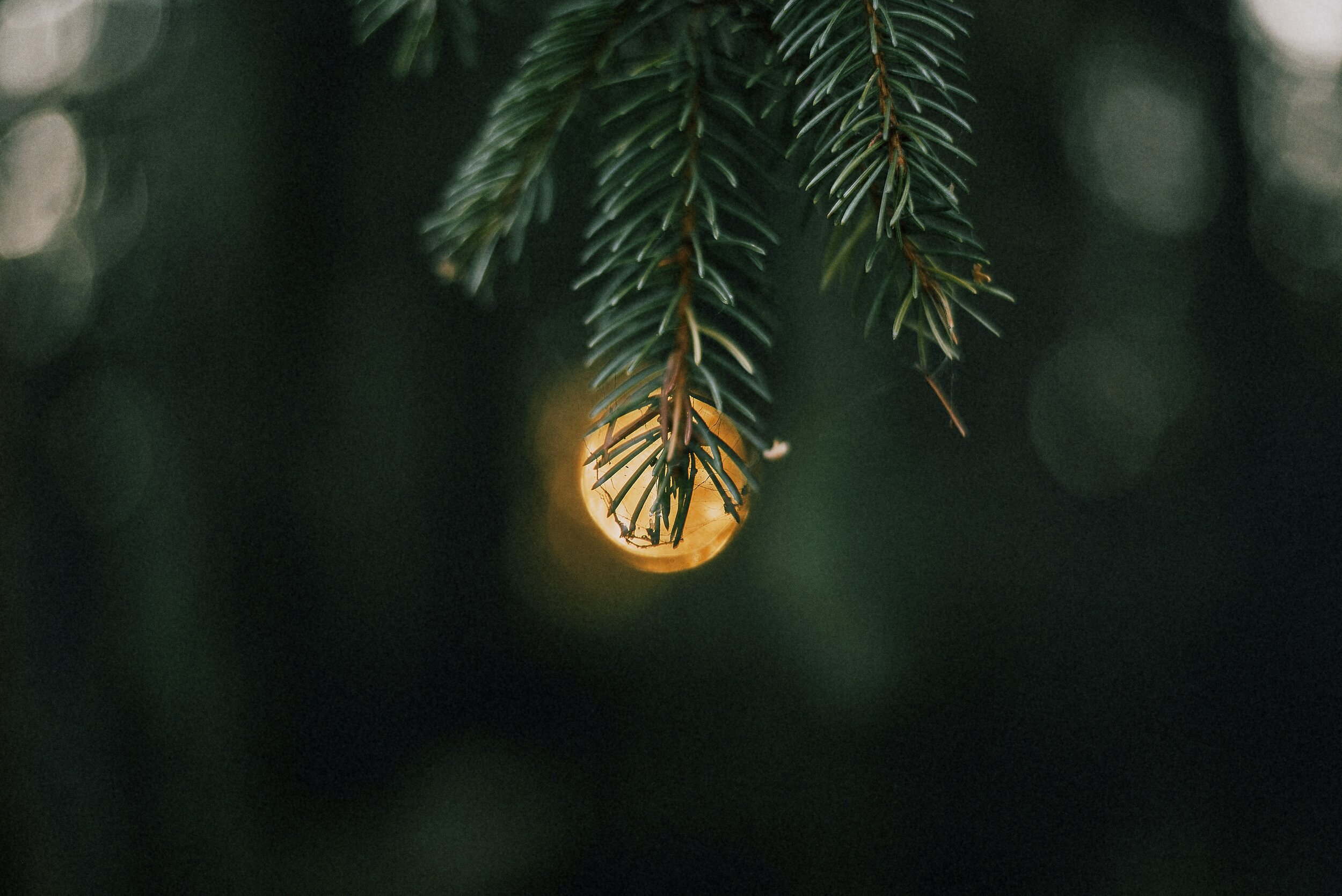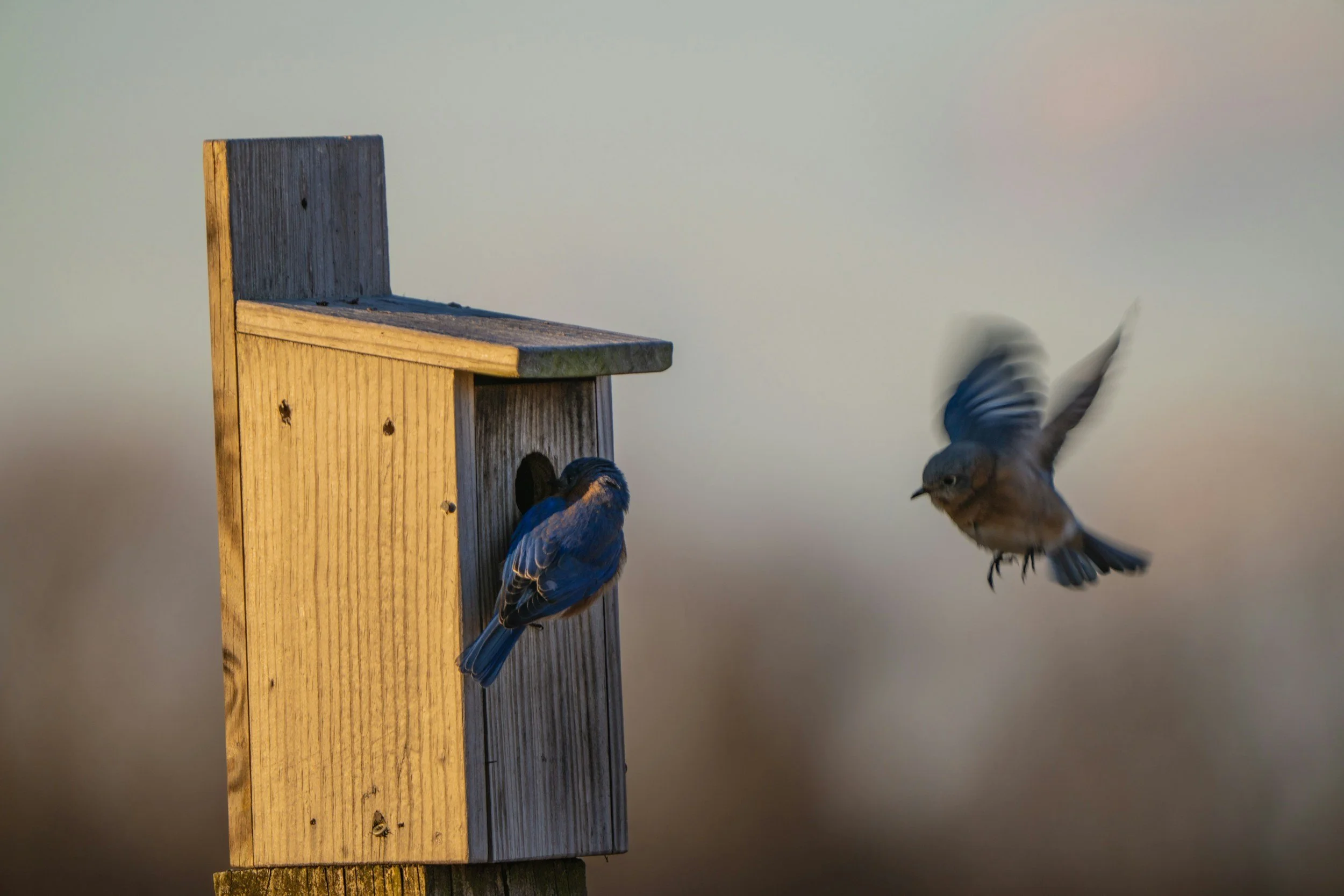
Go Green with a
Real Christmas Tree
Our Philosophy
Like many small farmers, we live on the land we farm and so we are connected to it in a unique way. We care about being responsible stewards of our land as well as the health and well being of all those who work with us and live around us. We honor our land, our Hart-T-Tree Farms family, and our broader community by using reasonable farming practices and an integrated pest management system.

How green are Christmas trees?
We know that Christmas trees are green, but are they eco-friendly? It’s a debate that continues season after season. The short answer is yes, compared to an artificial tree, a real Christmas tree is more eco-friendly. How did we arrive at that conclusion? Read the articles below to discover more about real Christmas trees.
First, however, let’s put the issue in perspective. Your choice of Christmas tree is not going to have a significant environmental impact. If you are really concerned about the environment, consider making more earth-friendly choices in your daily routine – like riding a bicycle to work, turning the water off while brushing your teeth, or using a reusable shopping bag. Doing those things, even over a couple of days, will have a greater impact on the environment than your choice of Christmas tree.
Artifical or Real?
There are a number of reasons why an individual or family might choose a real tree or an artificial tree for Christmas, but if your choice is based on which tree is more earth-friendly, environmentalists across the nation have come to a fairly clear-cut consensus: real is better. There are several reasons that a real tree is more eco-friendly than an artificial tree, but the primary reason is because an artificial tree is non-biodegradable. Most artificial trees are made from Polyvinyl Chloride (PVC) plastic that will sit in landfills forever. Also, according to the U.S. Environmental Protection Agency, when produced or burned, artificial trees release dioxins that can cause liver cancer and developmental problems.
According to a Life Cycle Assessment conducted in 2009 by Ellipsos (a consulting firm in Montreal that specializes in sustainable development) that compared the environmental impact of a real (or natural) tree vs. an artificial tree, artificial trees have a greater overall impact on climate change. The carbon emissions used in the production and transport of artificial trees are greater than the carbon emissions used in the production and transport of real trees. Interestingly enough, the study also noted that “Carpooling or biking to work only one to three weeks per year would offset the carbon emissions from both types of Christmas trees.”
What about the impact of a real, farmed Christmas tree on the surrounding eco-system? All factors considered, if farmers practice integrated pest management farming methods and keep pesticide use to a minimum, Christmas trees can have a positive impact on the environment. See our section on Christmas Trees & The Environment below for more details.
What about the impact of a real, farmed Christmas tree on the surrounding eco-system? All factors considered, if farmers practice integrated pest management farming methods and keep pesticide use to a minimum, Christmas trees can have a positive impact on the environment. See our section on Christmas Trees & The Environment below for more details.
For more information about real vs. artificial, check out these articles and studies:
“The Environmental Choice” by the North Carolina Christmas Tree Association “Planting an Idea: Choosing a Real vs Artificial Christmas Tree” by Madeleine Somerville on Earth911 (December 2014) “How Green Is Your Artificial Tree? You Might be Surprised” by John Collins Rudolf in The New York Times (December 2010) “Real vs. Artificial Christmas Trees” by Lori Brown in Earth911 (November 2010) “Green Myths Debunked: Product: O Christmas Tree” from CNN Money (March 2010) “Comparative Life Cycle Assessment of Artificial vs. Natural Christmas Tree” from Ellipsos (February 2009) “How to Have a Green Christmas” by Karen Springen in Newsweek (November 2007)

Christmas Trees: Farm vs Forest
It is difficult for some individuals and families to imagine chopping a tree down, just to display it for 4-5 weeks at Christmas time. It seems sad and wasteful and so they opt for an alternative to a real tree. However, real Christmas trees do not come from forests. They come from farms. They are an agricultural crop, similar to produce, flowers, or plants. They are planted to be harvested and to proudly serve as the centerpiece of your Christmas season.
Generally, land is not cleared to farm Christmas trees. Many, if not most, Christmas trees in western North Carolina are grown on farms that were cleared long ago for use as pasture for cattle. At Hart-T-Tree Farms, 95% of the land used to grow our Christmas trees was land that was already cleared. Our “home farm” was originally a dairy farm. So, if the land was not a Christmas tree farm, it would support some other type of crop or livestock. Or worse — it would be made into a subdivision!
So, think of it this way: A little seedling was planted, many years ago, and given some tender loving care season after season just to have the opportunity to be someone’s Christmas tree! And while it was growing, it served as a home or shelter to countless birds, rabbits, mice, groundhogs, and other little creatures. That is one of the most special things about Christmas trees. Because it takes them many years to grow, they can become part of their surroundings in a way that other crops cannot.
And when Christmas is over, don’t just throw your tree in the dumpster or let it rot on the curbside. Recycle it. Then, the tree becomes part of the earth again and its circle of life continues…..
Check out Earth911.com to find a Christmas tree recycling center near you.

Christmas Trees and the Environment
While they are growing, Christmas trees support life by absorbing carbon dioxide and other gases while giving off fresh oxygen. Every acre of Christmas trees planted gives off enough oxygen to meet the needs of 18 people. Today in America, there are enough Christmas trees planted that 18 million people a day are supplied with oxygen. To ensure a constant supply, Christmas tree growers plant one to three new seedlings for every tree they harvest. Also, the farms that grow Christmas trees help to stabilize soil, protect water supplies, and provide a refuge for wildlife.
Additionally, Christmas trees are grown on soil that will not support other crops. In western North Carolina, development has increased exponentially in the last few decades. Since Christmas trees can be grown on soil that cannot be used for other crops, landowners are able to make a profit on their land, preserving it as greenspace, and not feel pressured to sell out to developers.
For more information, visit the National Christmas Tree Association, the North Carolina Christmas Tree Association and the North Carolina State University Cooperative Extension.

Christmas Trees and Pesticides
Pesticides are one of the most controversial topics in the real tree debate. As a nation, we have become more aware of the health risk of pesticides used on the food we eat and the demand for organic produce has increased. Similarly, Christmas tree farmers have recognized the potential health risks in the use of pesticides on Christmas trees and in the last 10 years, have cut the use of pesticides in half. Additionally, many farmers have adopted Integrated Pest Management techniques which also limit the use of pesticides.
For more information, please visit the North Carolina State University Cooperative Extenstion Program website. They have an entire section dedicated to Christmas tree production in North Carolina, including articles about the health concerns of pesticides used in Christmas tree production. Their information is very thorough and should answer a lot of questions!
Long Term Study from Appalachian State University finds no negative impact on Eastern bluebird population living in Christmas trees.
Research, industry updates highlight NC Christmas Tree Association meeting
WATAUGA — Christmas tree growers from across Western North Carolina gathered recently at Clawson Christmas Tree Farm in Watauga County for the industry’s summer meeting, an event held every year in the county’s major tree-producing areas.
One highlight of the Clawson Farm stop was a presentation by Dr. Lynn Siefferman, professor of biology at Appalachian State University, who has been conducting a long-term study on Eastern bluebirds and other cavity-nesting species at the farm.
Siefferman has monitored over 350 bird boxes, with more than 60 nest boxes on the property, tracking reproductive success, survival and potential impacts from pesticide use.
“We have never been able to document any negative effects on the reproductive success of the birds,” she told attendees. “We haven’t seen differences in growth rates, immune function, stress hormone levels or adult survival between birds living on Christmas tree farms.”
Siefferman also discussed a range of topics in her research, including the benefits of bird boxes for farmers and the impacts parasites have on birds.
Farm owner Joey Clawson said the results are encouraging.
“All these years with what I’ve been using, they’ve never found any negative impact on the birds,” he said. “We can get so many negative attitudes from the population in the High Country, but from what she’s found, there’s no negative impact for the birds, which is good news for the Christmas Tree industry.”
Other presentations at Clawson’s included a presentation on herbicides and the reestablishment of ground cover by drone frost seeding.
Read the full article here.



